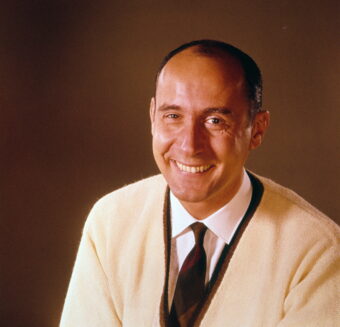As ZZ Top’s instantly identifiable frontman, Billy Gibbons has built a long, lucrative, and much-loved career out of a handful of chords and a steady groove. Along with drummer Frank Beard and bassist Dusty Hill, the singer-guitarist, 62, keeps things refreshingly simple on the trio’s first new studio effort in nine years, the recently released La Futura(Universal Republic), produced by Rick Rubin. Thick with greasy boogie, habanero-hot guitar, and fat beats, the album is proof that the recipe doesn’t need changing if the food still kicks. We rang the sharp-dressed Mr. Gibbons at his home in Houston, where he was taking a few days off from the band’s fall tour, to sop up some highly astute philosophizing.
Learn to play what you want to hear.
My dad told me that, he being an entertainer. Right in the early stages of my career, he gave me one of the most valuable pieces of advice. I said, “What is the secret?” He said, “Well, there’s many things that are secrets until you stumble upon them.” And then he said that; he said, “Learn to play what you want to hear.” I took him seriously. So many times you find guys studying this and studying that and it’s really not what they want to hear. Until you learn to play what you want to hear you’re barking up the wrong tree. ZZ Top all gravitated toward that mindset. We are genuinely a band that is steeped within a tradition of blues, this great American art form that allows for interpretation. We’re not afraid to experiment, but we never get too far away from the old tried-and-true 12-bar blues.
Don’t depend on hanging out with your bandmates.
The first time Dusty, Frank, and I played together, we said “Well, let’s just do a simple shuffle.” Three or four minutes was the idea. Just to see how it all fit together. The jam lasted for three hours. Non-stop. I said, “I don’t know what you guys got going on but it’s an easy platform for me to stand on. Let’s make it happen.” It’s been a delight to keep the lineup unchanged for four decades. Our backbone is playing. We are not social. When we have breaks from the road we may touch base by phone to get organized toward the next outing but we’re not really concerned about hanging out at the same restaurant. It’s about the music. I couldn’t begin to tell you what Frank and Dusty do in their time off. I’ve never been to my drummer’s house. I think I went to Dusty’s house once. We’re not in each other’s faces.
You’ve got to enjoy playing.
That’s something that working with Rick Rubin on La Futura made me realize even more deeply. I had not really bothered to take in Rick’s methodology, and then when we finally pulled the trigger and got things underway I was fascinated with the main ingredient that Rick brings to the party, which is a sensational measure of patience. Now, that quality has caused consternation with some of his other clients. Many artists don’t like to repeat things in the studio. Rick, on the other hand, is in no hurry. One of the key valued points of his was his willingness to persuade artists to continue to re-perform that which they think is completed. I supposed it can be quite aggravating but it works for ZZ Top. Where a lot of artists might throw in the towel and say, “This is ridiculous, we’re just playing the same thing over and over,” we truly enjoy it. The fifth run-through might be the one where something different jumps up. Rick’s patience allows him to wait for those moments.
Rappers want guitar-driven music and rockers want wicked backbeats.
That realization brought me to writing [La Futura‘s] “I Gotsta Get Paid.” Back in ’96 or so, there was a song [by DJ DMD] that hit big out of the Houston rap scene called “25 Lighters.” It just caught my attention. It directly inspired our song. Our connection with rap is not a fanciful one. I mentioned the musical reciprocity, but we were working in a studio in Houston called John Moran’s Digital Services at the same time that the Geto Boys were spending a lot of time there. Scarface and Bushwick Bill could spin some epic stories. The camaraderie was germinating. Then the Cash Money guys like Juvenile and Mannie Fresh would come by. It was really something. It’s important to collect unusual characters. It keeps you sharp. I’m an unusual character, too. That’s why other unusual characters like Josh Homme or Jack White have extended invitations for me to work with them.
It’s odd, but there are various ways to make guacamole.
I’ve been touted for my guacamole. I’ll stand by my method. People have asked me to come to their home and prepare it. Restaurants have asked me about it. I’ll get as close as I can to sharing the recipe without spoiling the secret. I use homemade ketchup—it’s way, way tastier than the standard Heinz variety. I also have a Velveeta cheese additive as the base. The cheese adds texture and the ketchup adds tangy sweetness. There are other ingredients: Cumin, Kosher salt, a sprinkle of pepper, avocados of course. Everybody really seems to go for the guacamole. We prepare it nearly every day. I also make hot sauce: BFG brand barbecue and hot sauces. I’m interested in flavor, not just heat.
Keep it on the Dark Continent.
I have a fixation with things African. I collect artifacts. I’ve made it no secret that the band has found some power in placing one of these objects in the doorways as you come into the recording studio. It’s just as a reminder: keep it bluesy. Keep it African. My interest was stimulated years ago. I’d taken out a little apartment in the Deep Ellum section of Dallas. It was cheap, an artists’ neighborhood. Similar in it’s way to what Williamsburg [Brooklyn] is—or was. Every Sunday in this neighborhood was a little flea market. There was cat running a table of African things. I bought a lot of stuff and he said, “You got a tasteful sense of style. You oughta step it up a notch.” He put me in touch with a white guy who ran a very high end African gallery. That’s how it started. But the reason that these artifacts took on a sense of importance for me was because they supported the suspicion that blues music had African retentions. We wanted to tap into where the music springs from.
It doesn’t hurt to have an identifier.
Having a visual element to your band is a good thing. Our peculiar image happened quite by accident. We were originally signed to London Records. After five or six albums, Warner Brothers’ [President] Mo Ostin made it clear that he had an interest in signing ZZ Top. But we had to let the London arrangement expire before we could jump ship. So we decided we’d stay off the road, do no public appearances and take no studio time until that happened. I went off to Europe and Dusty was down in Mexico and Frank went over to Jamaica. And when it was time to finally meet again we saw that all of us had grown these ridiculous beards. It was somewhat amusing. And I said, “Well let’s just leave them and see what happens.” Frank threw in the towel early. He might’ve been the smarter one. He’s allowed to shave 35 years later. But Dusty and I, we stroll down the street anywhere in the world and people either think, “There’s a couple of religious nuts, stay away from those guys” or “That’s ZZ Top.” Surely, that’s more than most bands ever get.





